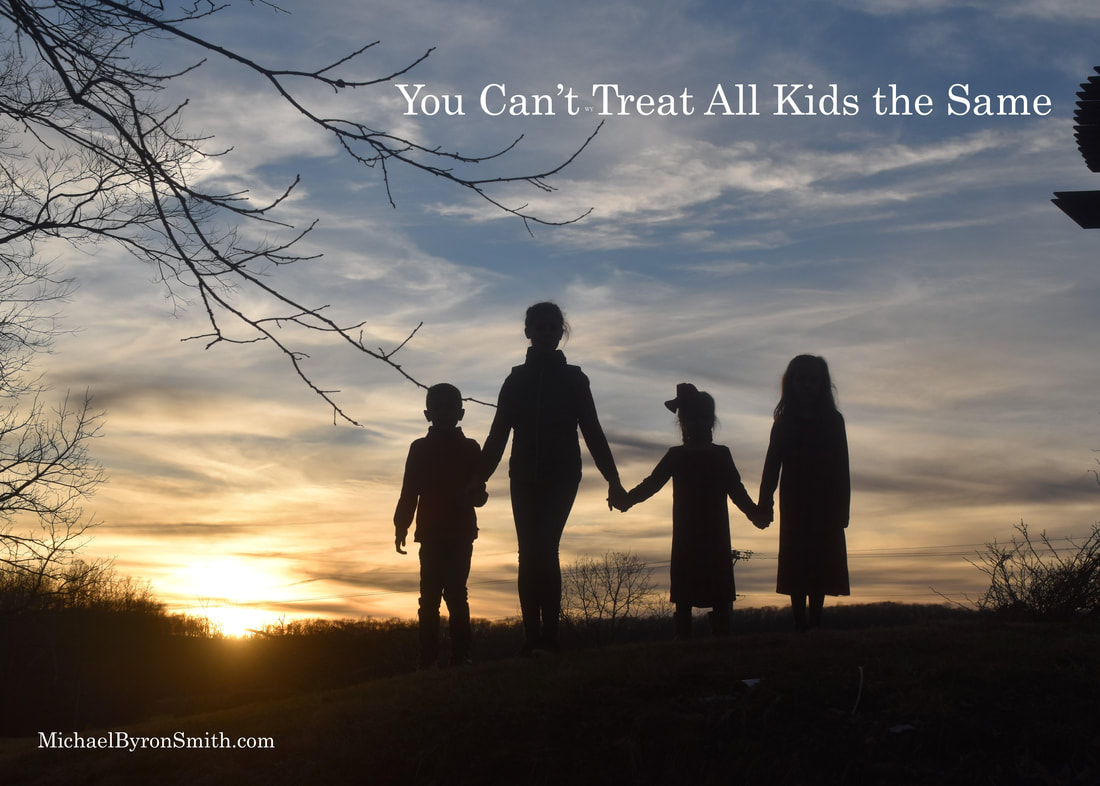
I would like to tell you about two families. In one family were three sisters who had irresponsible parents into drugs and alcohol. The girls had little guidance outside of their grandmother. All are now adults, except one who has recently died of heart failure at 45 years brought on by drug use. Her life was also one of irresponsibility, having children of her own out of wedlock but not raising them. Her older sister is also a drug abuser, living on a disability income due to her lifestyle. Her future remains bleak, having close calls with her health, all self-imposed. The youngest of the three took a completely different path. She chose responsibility for herself, went to college, and became a teacher. She is now happily married to a nice man, and they have beautiful children.
In the second family were three children, two boys, and a girl. This family appeared to be normal and responsible. The father was a coach for their sports teams, and the mom was lovely and caring. They even were kind to their children’s friends who were not so fortunate, taking them camping and to various activities at their expense. This family seemed to have many advantages doing the right things for their kids. However, the oldest boy was shot to death, being in a place he should not have been. The younger boy was deeply into drugs and died of an overdose at 40 years of age. The daughter’s life, while not perfect, did not get into the troubled her brothers did, but lives a lonely life.
Unpredictably, the youngest daughter of the first family succeeded despite her upbringing. Also unpredictable in the second family was the fate of the two boys, both failing in society and dying tragically. I don’t know if either set of parents treated all their children the same. I would guess they did – especially the first family, not giving proper attention to any of the three. The second family did many things right as parents, on the surface, but did they really know their children as individuals?
Of the six, the youngest girl in the first dysfunctional family was the most successful. Why? Some children indeed succeed in life despite serious disadvantages, while others fail while seemingly having a proper start in life. But that is not my point. I use these examples to explain that all parents should recognize that they are raising individuals. Sometimes you get lucky – sometimes you do not. It shouldn’t be left up to chance.
Some parenting techniques are well proven. My favorites are being involved in their children’s lives, being fun when appropriate, consistency, having principles, being loving, having some passion for parenting, and being balanced in all of those areas. But the balance is not between the children – treating them equally; it’s your balanced treatment of each child as an individual. Your involvement may need to be less (or more) depending on the child. Being consistent is your consistent treatment with each child – so they know what to expect from you. Your principles, love, and passion should be equal for all.
So why do we treat each child fairly but differently? Let’s tell it like it is;
- Some kids need a push while some need to be reeled in.
- Some kids are book smart, while some are smart in daily life.
- Some kids are extroverts, while some are introverts.
- Some kids are leaders, while some are followers.
- Some kids have inborn principles, while others need more direction.
- Some kids are over-active, while others are docile.
- Some kids are sensitive, while others act tough.
- Some kids are creative, while others are doers.
- Some kids are loving, while some are more stand-offish.
- Some kids are cute, while some are not as cute.
- Some kids trust too little while others trust too much.
- Some kids are lazy, while others get things done.
- Some kids want attention, while others don’t want any.
- Some kids are loveable more than others.
- Some kids are open to learning, while others resist it.
- Some kids are independent, while others are needier.
Many kids have aspects on both sides of the characteristics above. Most are one a sliding scale from left to right that often moves. All kids are a combination of these characteristics, and those combinations are in the multiples of thousands. The list above is why parenting is so tricky and should never be practiced casually or cavalierly. What you sincerely want to do is to treat all your children (and everyone) as fairly as you can. But you really won’t be doing that if you treat them all the same. Good luck!
#powerofdadhood
















